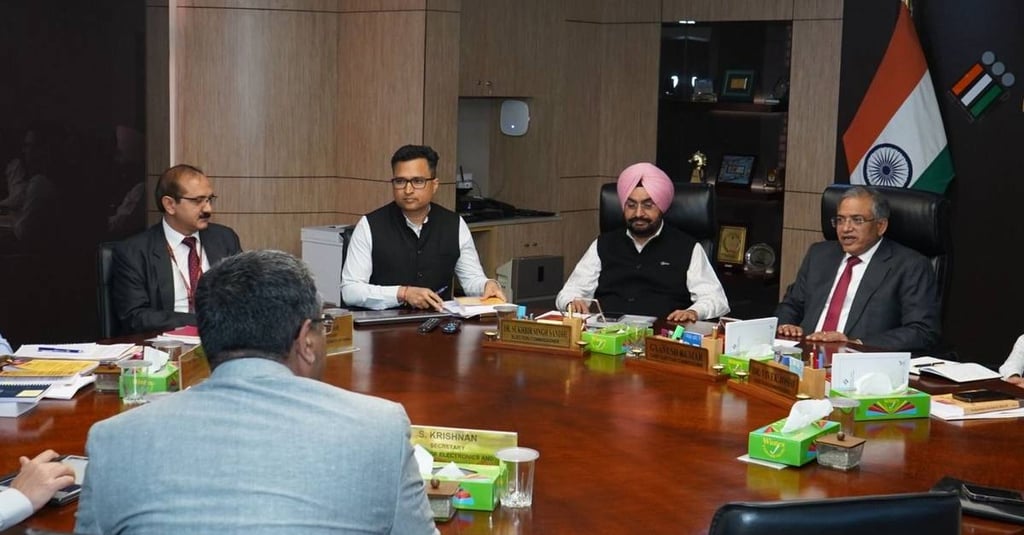ECI to link EPIC with Aadhaar as per constitutional and legal provisions; Sikkim to follow guidelines
The Commission emphasized that while Article 326 guarantees voting rights only to Indian citizens, Aadhaar serves as a proof of identity, not citizenship.
LOCAL


The Election Commission of India (ECI) has reaffirmed its commitment to linking Electors Photo Identity Card (EPIC) with Aadhaar, ensuring compliance with Article 326 of the Constitution, relevant sections of the Representation of the People Act, 1950, and Supreme Court directives. The move, which is expected to streamline voter identification and reduce electoral discrepancies, will also be implemented in Sikkim under the guidance of the state election authorities.
In a high-level meeting held at Nirvachan Sadan, New Delhi, Chief Election Commissioner Gyanesh Kumar along with Election Commissioners Dr. Sukhbir Singh Sandhu and Dr. Vivek Joshi, met with Union Home Secretary, Secretary Legislative Department, Secretary MeitY, CEO UIDAI and technical experts of ECI to discuss the technical and legal framework for linking EPIC with Aadhaar.
The Commission emphasized that while Article 326 guarantees voting rights only to Indian citizens, Aadhaar serves as a proof of identity, not citizenship. Thus, the process will adhere strictly to Sections 23(4), 23(5), and 23(6) of the RP Act, 1950, along with the Supreme Court’s ruling in WP(Civil) No. 177/2023.
For Sikkim, this development is particularly significant as the state gears up for the upcoming elections. The State Election Commission will align its processes with ECI directives, ensuring smooth implementation while safeguarding voter rights. The linking initiative aims to enhance electoral integrity, prevent duplicate voter registrations, and facilitate a more transparent electoral process.
Technical consultations between UIDAI and ECI’s expert teams will soon begin to work out the operational aspects of the linkage. Sikkim’s electoral officials are expected to coordinate closely with the ECI to ensure the state’s compliance with the new guidelines.
